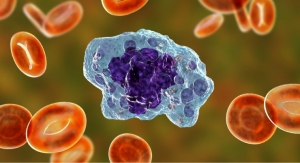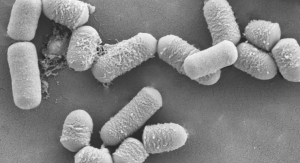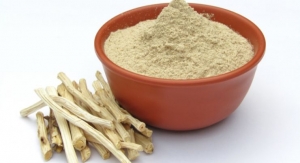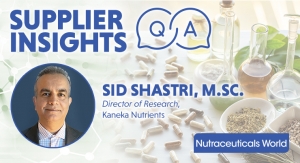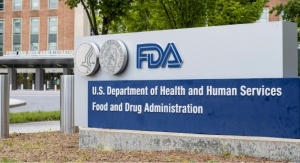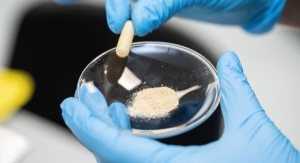06.06.22
A mixed tocotrienol complex marketed by ExcelVite as EVNol SupraBio was evidenced in a double-blind, randomized, controlled study to prevent the progression of early diabetic retinopathy by mitigating the progression of retinal microhemorrhage and diabetic macular edema (DME).
Tocotrienols are a family of four compounds that are classified as vitamin E. Other forms of vitamin E are within a family of compounds known as tocopherols. Diabetic retinopathy, an eye complication caused by diabetes, can be graded into two main stages - non-proliferative and proliferative. Non-proliferative diabetic retinopathy (NPDR) is the early stage of diabetic retinopathy which can be managed to avoid progressing into proliferative retinopathy.
In the study, 55 participants with NPDR were randomized to take either a placebo or 200 mg of the mixed tocotrienol complex twice daily for 12 months. Over the study duration, the researchers measured the percentage change of retinal bleed, diabetic macular edema, and an angiogenesis biomarker known as serum vascular endothelial growth factor. These measurements, all of which are used to track the progression of retinopathy, were taken at two months, six months, and 12 months.
The placebo group experienced a significant (23.42%) growth in retinal microhemorrhage area, but this change wasn’t present in the treatment group. Further, the treatment group experienced a significant reduction as high as 48.38% in the size of diabetic macular edema – no similar reduction was observed in the treatment group.
Additionally, the researchers speculated that the mechanism of action in delaying diabetic retinopathy progression by the bio-enhanced mixed-tocotrienol complex was through a different mechanism of action than expected. Initially, it was thought that the ingredient would inhibit angiogenesis, but this was not the case as evidenced by unchanged biomarkers.
Taken together, the authors wrote that the findings confirm the beneficial effect of the mixed-tocotrienol complex in DR progression, but that the mechanism of action should be further studied. The findings were consistent with a previous study published in 2021 which found a significant decrease in the size of diabetic macular edema and retinal microhemorrhages linked to tocotrienol supplementation.
“Blindness is the most feared complication in people with diabetic retinopathy and thus it often leads to emotional distress and mental health concerns,” said Dr. Sien Yei Liew, head of applications, research, and development at ExcelVite. “Notwithstanding, it is fortunate that the risk of vision loss can be greatly reduced by timely medical management and treatment. We believe our bio-enhanced mixed-tocotrienol complex EVNol SupraBio is an effective adjunct therapy to support diabetic retinopathy or at least slow down its progression to a certain extent. Neither short-term nor long-term supplementation of EVNol SupraBio appears to adversely affect human health as ascertained in the research studies. Not only diabetic retinopathy, EVNol SupraBio was also being extensively studied in other diabetic complications such as diabetic neuropathy and nephropathy.”
Tocotrienols are a family of four compounds that are classified as vitamin E. Other forms of vitamin E are within a family of compounds known as tocopherols. Diabetic retinopathy, an eye complication caused by diabetes, can be graded into two main stages - non-proliferative and proliferative. Non-proliferative diabetic retinopathy (NPDR) is the early stage of diabetic retinopathy which can be managed to avoid progressing into proliferative retinopathy.
In the study, 55 participants with NPDR were randomized to take either a placebo or 200 mg of the mixed tocotrienol complex twice daily for 12 months. Over the study duration, the researchers measured the percentage change of retinal bleed, diabetic macular edema, and an angiogenesis biomarker known as serum vascular endothelial growth factor. These measurements, all of which are used to track the progression of retinopathy, were taken at two months, six months, and 12 months.
The placebo group experienced a significant (23.42%) growth in retinal microhemorrhage area, but this change wasn’t present in the treatment group. Further, the treatment group experienced a significant reduction as high as 48.38% in the size of diabetic macular edema – no similar reduction was observed in the treatment group.
Additionally, the researchers speculated that the mechanism of action in delaying diabetic retinopathy progression by the bio-enhanced mixed-tocotrienol complex was through a different mechanism of action than expected. Initially, it was thought that the ingredient would inhibit angiogenesis, but this was not the case as evidenced by unchanged biomarkers.
Taken together, the authors wrote that the findings confirm the beneficial effect of the mixed-tocotrienol complex in DR progression, but that the mechanism of action should be further studied. The findings were consistent with a previous study published in 2021 which found a significant decrease in the size of diabetic macular edema and retinal microhemorrhages linked to tocotrienol supplementation.
“Blindness is the most feared complication in people with diabetic retinopathy and thus it often leads to emotional distress and mental health concerns,” said Dr. Sien Yei Liew, head of applications, research, and development at ExcelVite. “Notwithstanding, it is fortunate that the risk of vision loss can be greatly reduced by timely medical management and treatment. We believe our bio-enhanced mixed-tocotrienol complex EVNol SupraBio is an effective adjunct therapy to support diabetic retinopathy or at least slow down its progression to a certain extent. Neither short-term nor long-term supplementation of EVNol SupraBio appears to adversely affect human health as ascertained in the research studies. Not only diabetic retinopathy, EVNol SupraBio was also being extensively studied in other diabetic complications such as diabetic neuropathy and nephropathy.”


